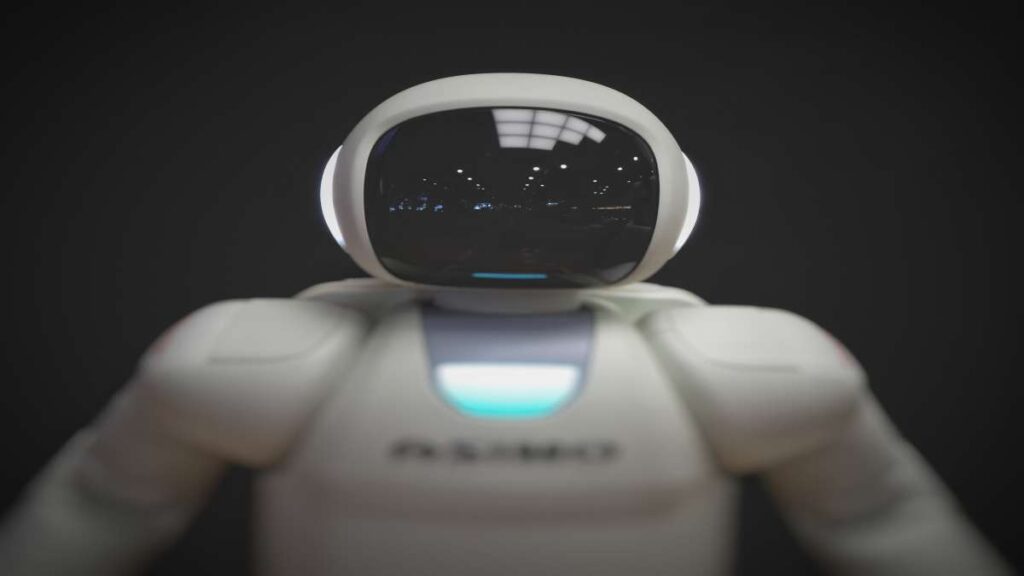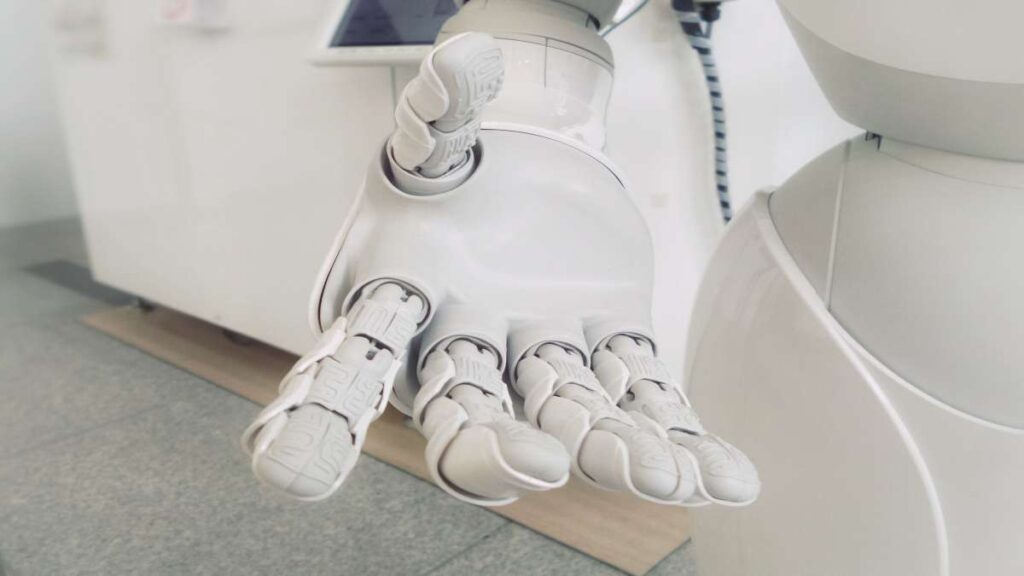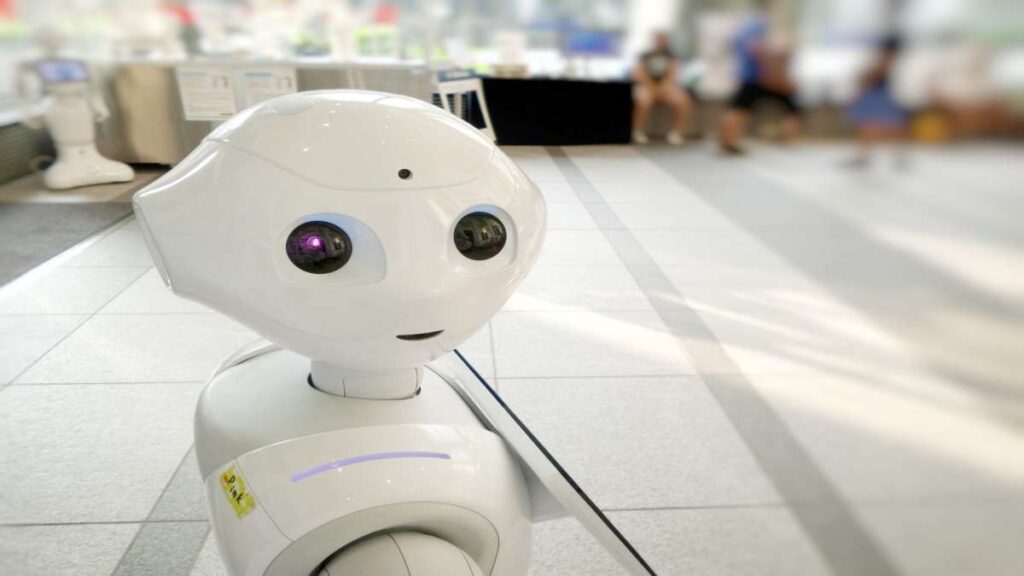Today’s digital landscape is more competitive than ever. The average marketer now has less than 20 seconds to capture a user’s attention before they move on to the next piece of content. With so much noise out there, marketers are being forced to become savvier in their approach and adopt new technologies that can help them cut through the clutter and stand out from the competition.
AI-driven robots offer marketers this kind of opportunity; they give marketers access to tools that allow them greater precision, speed, and volume when producing content. This blog post discusses how AI-driven Robots will change marketers forever.
Table of Contents
Defining AI-driven Robots
Robots, in this context, are software programs that are built with Artificial Intelligence (AI) and Machine Learning (ML) capabilities, which allow them to learn, adjust, and evolve as time goes on. Robots have been used in marketing since the mid-2000s, but with the rise of AI, marketers will now have access to a wider range of tools that can help them automate certain processes, increase productivity, and ultimately deliver better results.
AI-driven robots are software robots that use AI to operate and make decisions based on the data and algorithms that power them. AI robots operate autonomously and can solve problems, respond to issues, and make real-time decisions based on the information they are programmed to act on.
Importance of AI-Driven Robots?
AI-driven robots are increasingly becoming more important in our society. They are able to do things that humans cannot do, such as autonomously flying drones or driving cars. In addition, they are able to do things that humans can do but are not as good at, such as data analysis and pattern recognition.
AI-driven robots also have the potential to improve our quality of life. For example, they can be used to assist the elderly and disabled. They can also be used to help with household chores or to provide entertainment.
AI-driven robots are not without their risks, however. They can be hacked and used for malicious purposes. They can also malfunction and cause harm to people or property. Nevertheless, the potential benefits of AI-driven robots outweigh the risks, and they are likely to become increasingly important in our society in the years to come.
Read Also: The Future of Human-Robot Interaction: What to Expect

Content Marketing By AI Robots
As AI robots become increasingly sophisticated, there will be no doubt that they will play a pivotal role when it comes to content production. AI robots are capable of collecting and analyzing data, identifying patterns, and producing content that is relevant to the consumer’s needs and interests.
AI robots can take information such as customer journey data and user profiles and generate thousands of pieces of content that are relevant to the consumer’s journey in a matter of seconds. This content can include blog posts, emails, videos, and other digital assets that marketers can use to nurture and engage their audience.
Although AI robots have been used to generate content for years, the recent rise of AI-driven robots will allow marketers to produce much more advanced and granular pieces of content. With increased capacity for analysis, AI robots are capable of producing highly individualized and contextual content that will resonate with the consumer on a personal level.
Marketers Can Outsource with AI Robots
The ability to outsource certain elements of content production can often be a win-win for both the client and the agency. However, reaching the right balance between cost-effectiveness and quality can be a challenge for marketers looking to source outside help.
AI robots can learn and adapt at an accelerated pace, marketers can outsource many of their content production tasks to AI robots, thereby opening up a greater number of options when it comes to outsourcing.
AI robots are capable of operating 24/7 and generating content across multiple channels, they are the ideal choice for marketers looking to outsource content production tasks.
Marketers can use AI robots to generate content across a wide range of channels such as blog posts, emails, and social media posts. AI robots can also be used to analyze and identify patterns in the data and generate insights that can help inform future content creation.

AI Robots Will Help Marketers Produce Content Faster and More Accurately
To date, AI robots have largely been used to generate low-value content that is essentially plagiarized, low-quality “me too” type articles. However, as the adoption of AI-driven robots grows and marketers are given greater access to more sophisticated tools, AI robots will undoubtedly produce higher-value content that is more accurate and relevant.
Marketplace tools such as Chatbots and Virtual assistants are already being used to help marketers produce more accurate content. Virtual assistants that have been programmed with machine-learning algorithms can understand data patterns and customer needs and then produce content based on this information.
At the same time, Chatbots can be programmed to respond to specific customer inquiries and produce content based on the question and the data that is available to the Chatbot.
Read Also: Home Security Robots
AI Robots May Help Detect Consumer Behavior
In addition to helping marketers produce accurate and relevant content, AI robots may also be able to help detect patterns of behavior among the consumer base. This can prove especially helpful for marketers working with smaller budgets who may not be able to dedicate resources toward analytics.
Unfortunately, many AI robots can’t read the sentiment, which means that they can’t understand what the consumer is saying. However, as AI robots become more sophisticated, we may see a rise in the number of AI robots that can read sentiment and detect behavioral patterns among the consumer population.
If this occurs, marketers will be able to use AI robots to understand what their customers are saying and what they want from brands.

Conclusion
Robots have long existed in the marketing world, but they have been narrowly focused on executing basic tasks.
As AI-driven robots become more advanced, they will be able to do more than just execute tasks; they will be able to understand data in a way that will allow marketers to make more strategic decisions.
If you’re looking to stay ahead of the curve and prepare for the future of marketing, you’ll want to keep an eye on how AI-driven robots evolve and gain access to the tools they provide.
Read Also:- The Wonderful Benefits of Home Security Robots
FAQ
Ques1. How artificial intelligence will change the future of marketing?
Artificial intelligence (AI) is a machine’s ability to simulate human thoughts and actions to perform functions that normally require human intelligence. Today, you’ll find AI technology in some of the most commonly used websites and applications.
For example, you’re dealing with AI when you’re asked to review a product or watch a video to receive a discount. Even Google search uses a form of AI, which is probably why it’s become so smart. As AI continues to grow and improve, businesses will rely more heavily on it to help with tasks that need to be completed in a timely and accurate manner.
Ques2. How AI is changing the marketing industry?
AI will have a significant impact on many industries, marketing being one of them. The rise of AI is likely to trigger a “flood” of data. The challenge facing marketers will then be how to find the signal within the noise.
This is where machine learning comes in. Through the practice of machine learning, algorithms can be created to detect patterns, predict consumer behaviors and personalize messages. While bots can be used to communicate with customers and gather information.
We are looking at a future where AI will allow the consumer to be targeted to a greater extent than ever before.
Ques3. Can AI replace marketers?
Yes. AI will soon replace marketers. Marketing automation is evolving very fast, and it is being adopted by many industries. AI uses statistics to learn from the data and provide accurate insights and predictions. Marketing automation can leverage AI as soon as it is available.
Ques4. How AI and digital transformation will change your business forever?
We are undergoing a digital transformation in every part of life, from social media and mobile phones to apps and online shopping. Artificial intelligence (AI) has become a major part of that transformation. It is as much a change in mindset as it is in the technology.
Businesses are starting to let go of the hierarchical structure that has defined the workplace since the industrial revolution, and everything is becoming open, flexible, and decentralized. We are now seeing the rise of a new generation of leaders and business models that will take the world by storm.
Ques5. Shark AI Robot
The shark ai robot is a new type of robot that is being developed to help with the conservation of sharks. The robot is designed to look and swim like a real shark, and it will be equipped with a camera and sensors to help it collect data about the sharks it encounters.
The data collected by the robot will be used to help researchers better understand the behavior and ecology of sharks and to ultimately help protect them from extinction.